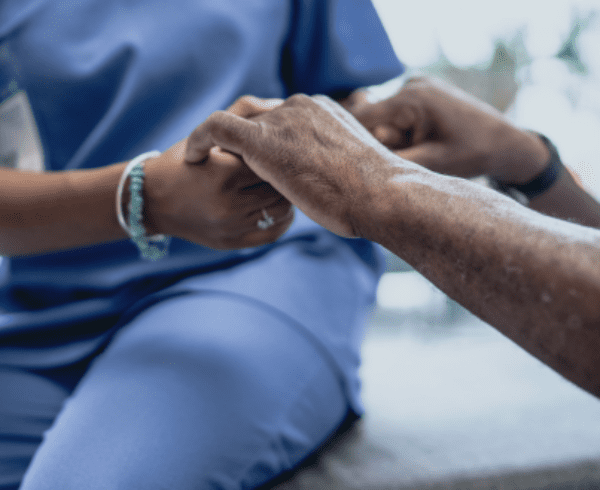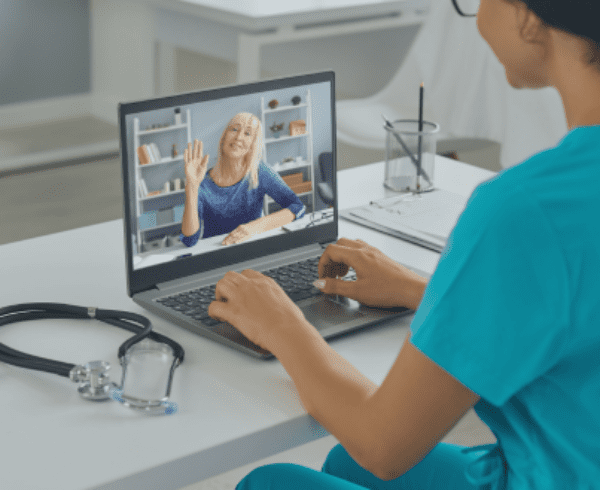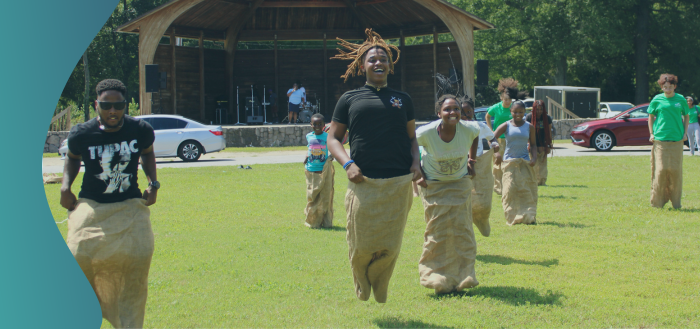February 1, 2022
The new year began with an unprecedented surge in COVID-19 cases due to rapid spread of the latest, highly contagious, Omicron variant. In early January, new weekly case counts topped 1 million nationally and the OCHIN network saw its highest spike since the beginning of the pandemic, with more than 14,000 new COVID-positive patients reported in OCHIN Epic during the first week of 2022.
That’s more than twice the number reported during the same week in 2021 (~6,000 cases)—one reason that OCHIN has redoubled its own efforts to provide real-time pandemic support in response to the evolving needs of the hundreds of community-based health care organizations it serves nationwide.
Omicron Adds to Clinician Burnout
At LifeLong Medical Care (LifeLong) an OCHIN member health center serving California’s Bay Area, providers were quickly overwhelmed with the skyrocketing demand for COVID-19 testing in early January when public health authorities urged people with symptoms to get tested before returning to work or school. Limited appointments at the health center’s testing sites filled up quickly and rapid antigen tests that could be used at home were hard to come by, leaving many service workers in financial bind. Unable to scale their clinical testing capacity with a limited staff, LifeLong struggled to keep pace with the thousands of COVID-related phone calls pouring in across its three testing sites each day.
“You know, it’s hard. And we show up every morning. We have times where we do break down, but it’s just the nature of it. We have to lift our spirits and keep moving,” said Griselda Ramirez-Escamilla, who runs the urgent care center at LifeLong, in a recent interview with KQED.
While the current Omicron wave may have finally peaked, understaffed care teams across the country are still reeling from exhaustion and burnout amidst the ongoing surge. Roughly 700,000 new cases of COVID-19 are still reported each week—more than during any prior COVID surge—and death tolls continue to rise, with many more people seeking COVID-19 care, testing, and vaccination.
All of this comes at a time when health care teams are strained to capacity, if not beyond. In the OCHIN Network, clinician burnout averaged 35% throughout 2021 and early data for January 2022 shows a similar trend at 32%. Ongoing staff shortages recently prompted the Biden Administration to award $103 million, through the Health Resources and Services Administration (HRSA), to reduce burnout and promote mental health among care teams, as the pandemic enters its third year.
“I have traveled to many health centers across the country and know that the COVID-19 pandemic has intensified issues that have long been a source of stress for frontline health care workers — from increased patient volumes to long working hours,” said Health and Human Services Secretary Xavier Becerra in a recent press release.
OCHIN Offers Rapid, Tailored Support for Health Centers
As U.S. households await the arrival of free at-home COVID-19 test kits from the federal government, the nation’s health centers continue to play a critical role in reducing health disparities that have been exacerbated by COVID-19. According to HRSA, last year health centers administered nearly 18 million COVID-19 vaccinations—with approximately two-thirds of those reaching patients identified as racial/ethnic minorities—and administered more than 8.5 million tests for COVID-19. This month HRSA began direct shipments of N-95 masks and home-based test kits to health centers for equitable distribution in underserved communities. And health centers have stepped up to the challenge, despite limited staff resources.
“Community health centers are in a unique position,” said Dr. Stacie Carney, MD, OCHIN’s Chief Medical Informatics Officer. “They’re facing burnout and staff shortages, like other health care providers, but they’re also getting home tests, new medications, and other supplies directly from the federal government which they must distribute appropriately amidst the surge. Health centers are in a wonderful position to help patients through these programs, but there is also a lot of work that goes into them at a difficult time.”
To help its member health centers process home-based COVID-19 test results received by phone, OCHIN built a new results console within the OCHIN Epic electronic health record system (EHR) that enables providers to update patient records quickly and easily. OCHIN also released new workflows and clinical decision support tools to help members manage other challenges beyond home test distribution and results, from new COVID treatments to updated vaccine guidelines. These rapid-response system upgrades, tailored to members’ evolving needs throughout the pandemic, make OCHIN distinct.
“Hearing what our members need and some of the pain points of the standard EHR build, we can help mitigate and think outside the box about how we’re going to address that,” said Lauren Alderson, a medical informaticist at OCHIN.
Some OCHIN members are developing custom solutions that benefit the entire network as well. Through OCHIN’s Provider Builder and Clinical Content Builder Programs, more than 250 participants—representing various members of a care team, including medical assistants, nurses, social workers, nurse practitioners and physician assistants, dentists, and physicians—are developing clinical capacity through health information technology (HIT), while contributing to the ongoing optimization of the OCHIN Epic system. This unique program expands OCHIN Epic training and skills at the clinic level, enabling health care organizations to develop ‘in-house’ solutions, which OCHIN then helps scale across the wider network for other members, who may face similar challenges, to utilize.
For example, Dr. TJ Schuch, MD, MPH, who is the CIO, a pediatrician, and a provider builder at South Boston Community Health Center in Massachusetts, developed a new set of custom rules based on the tiered National Institutes of Health (NIH) guidelines for who should receive outpatient COVID-19 treatment to assist with clinical decision support within OCHIN Epic. He also built decision support tools for notes to help providers review the parameters to safely prescribe Paxlovid, an antiviral pill recently authorized for use against COVID-19. By converting fast changing medical guidelines to the point of care, it’s easier for providers to deliver appropriate COVID-19 medications for patients who may be under vaccinated or immunocompromised. OCHIN is scaling the solution across its network for other health centers to access in OCHIN Epic, helping more providers avoid missed opportunities to offer these new treatments to their patients.
Expanding Clinical Capacity for the Road Ahead
At OCHIN, easing clinician burden today, while augmenting clinical capacity to meet the challenges of tomorrow, is a top priority. That’s why OCHIN is actively developing new workforce programs and specialized training opportunities designed to meet care teams where they are, with cost-efficient solutions to help advance expertise, reduce burnout, improve organizational effectiveness.
These new service offerings will be available to all types of health care organizations, whether they are current OCHIN members or not. We look forward to sharing more information as they become available soon.
This blog is the second of a two-part series examining the issue of clinician burden. Stay tuned for further updates on OCHIN’s training and workforce development solutions throughout the year.













